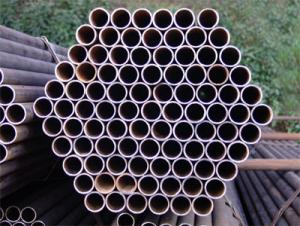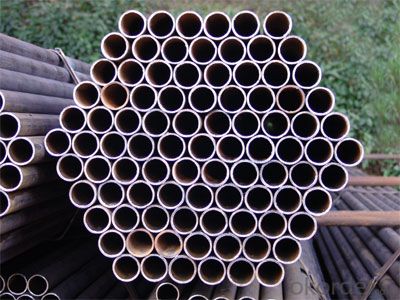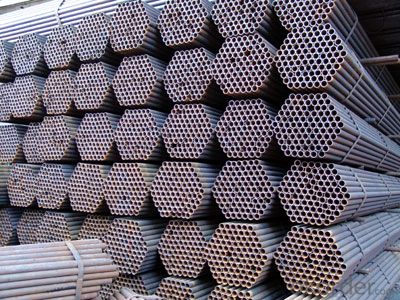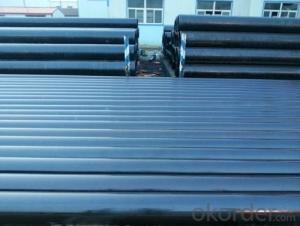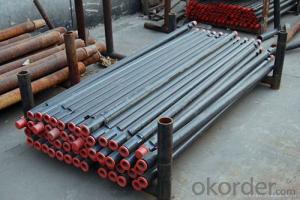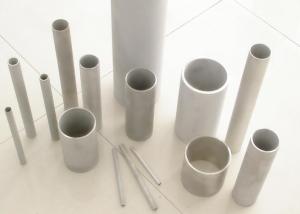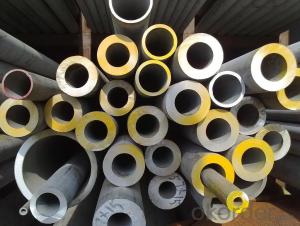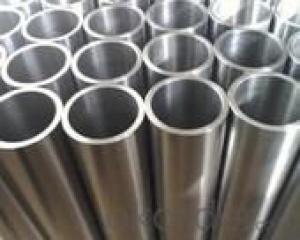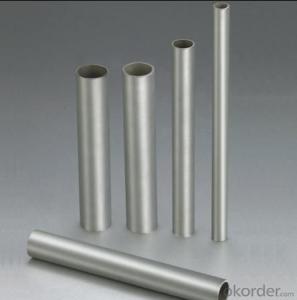Steel Pipe eamless Steel Tube for Gas Cylinder Seamless Steel Pipe
- Loading Port:
- Shanghai
- Payment Terms:
- TT or LC
- Min Order Qty:
- 25 m.t.
- Supply Capability:
- 8000 m.t./month
OKorder Service Pledge
OKorder Financial Service
You Might Also Like
1、Structure of Welded Steel Pipe API SPEC 5CT:
Welded Steel Pipe is to be used for conveying gas, water, and petroleum foroil and natural gas industries. And used for structural steel pies purpose. As the manufacturing process does not include any welding, seamless pipes are perceived to be stronger and more reliable. Historically seamless pipe was regarded as withstanding pressure better than other types, and was often more easily available than welded pipe.
2、Main Features of Welded Steel Pipe API 5CT:
• High manufacturing accuracy
• Small inertia resistance
• Strong heat dissipation ability
• Good visual effect
• Reasonable price
3、Welded Steel Pipe API 5CT: Specification:
Standard | GB, DIN, ASTM ASTM A106-2006, ASTM A53-2007 |
Grade | 10#-45#, 16Mn 10#, 20#, 45#, 16Mn |
Thickness | 8 - 33 mm |
Section Shape | Round |
Outer Diameter | 133 - 219 mm |
Place of Origin | Shandong, China (Mainland) |
Secondary Or Not | Non-secondary |
Application | Hydraulic Pipe |
Technique | Cold Drawn |
Certification | API |
Surface Treatment | factory state or painted black |
Special Pipe | API Pipe |
Alloy Or Not | Non-alloy |
Length | 5-12M |
Outer Diameter | 21.3-610mm |
Grade | 20#, 45#, Q345, API J55, API K55, API L80, API N80, API P110, A53B |
Standard | ASME, ASTM |
1) Material:20#(ASTM A 106/A53 GRB.API5LGRB,GB),45#.
2) Specification range:OD:21.3-610mm,WT:6-70mm,length:6-12m or according to the requirement of clients.
3) Excutive standards:GB,ASME API5L.ASTM A 106/A53,Despite of the above standards,we can also supply seamless steel pipe with standard of DIN,JIS,and so on,and also develop new products according to the requirements of our clients!
4) Surface:black lacquered,varnish coating or galvanized.
5) Ends:Beveled or square cut,plastic capped,painted.
4、Packaging & Delivery
Packaging Details: | seaworthy package,bundles wrapped with strong steel strip |
Delivery Detail: | 15-30days after received 30%TT |
5、FAQ of Welded Steel Pipe API SPEC 5CT:
①How is the quality of your products?
Our products are manufactured strictly according to national and internaional standard, and we take a test
on every pipe before delivered out. If you want see our quality certifications and all kinds of testing report, please just ask us for it.
Guaranteed: If products’ quality don’t accord to discription as we give or the promise before you place order, we promise 100% refund.
②How about price?
Yes, we are factory and be able to give you lowest price below market one, and we have a policy that “ for saving time and absolutely honest business attitude, we quote as lowest as possible for any customer, and discount can be given according to quantity”,if you like bargain and factory price is not low enough as you think, just don’t waste your time.Please trust the quotation we would give you, it is professional one.
③Why should you chose us?
Chose happens because of quality, then price, We can give you both.Additionally, we can also offer professional products inquiry, products knowledge train(for agents), smooth goods delivery, exellent customer solution proposals.Our service formula: good quality+good price+good service=customer’s trust
6、 Welded Steel Pipe API SPEC 5CT: Images:
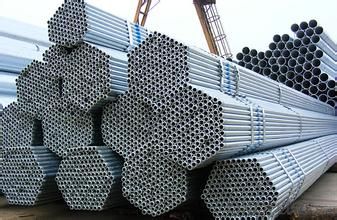
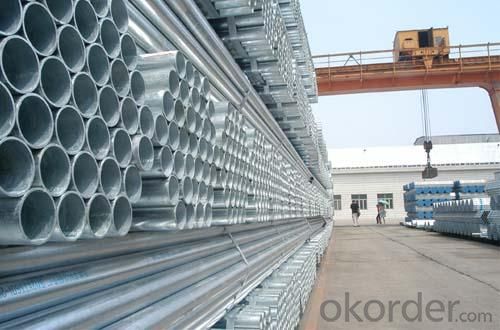
- Q: What are the common applications of steel pipes in the water distribution system?
- Steel pipes are commonly used in water distribution systems for various applications such as transporting water from treatment plants to distribution points, carrying water under high pressure, and providing a durable and long-lasting solution for underground water pipelines.
- Q: Are steel pipes suitable for use in coastal areas?
- Yes, steel pipes are suitable for use in coastal areas. Steel is highly durable and resistant to corrosion, making it an ideal choice for withstanding the harsh conditions typically found in coastal environments, such as saltwater, high humidity, and strong winds. Additionally, steel pipes offer excellent strength and stability, ensuring their longevity and reliability in coastal applications.
- Q: Can steel pipes be used for underground culverts?
- Yes, steel pipes can be used for underground culverts. Steel pipes are known for their strength, durability, and resistance to various environmental factors, which makes them suitable for underground applications. They can withstand heavy loads, high water pressure, and the corrosive effects of soil and water. Additionally, steel pipes are available in various sizes and thicknesses, allowing for customization to fit specific project requirements. However, it is important to consider factors such as the soil conditions, water table levels, and potential for corrosion when selecting the appropriate type of steel and protective coatings for the pipes.
- Q: What type of steel pipe for security windows?
- General anti-theft window through the round tube is 3 cm square tube, 22.5 mm diameter round tube, also can use all square tube to do, if you want to median 304, the pipe is estimated more expensive, the market to do the price in 60 to 110 range. As for plastic steel, Anhui conch brand, the price of 180 this way. Aluminum alloy 110 to 230 specific look what material?!
- Q: How are steel pipes used in the construction of high-rise buildings?
- Steel pipes are commonly used in the construction of high-rise buildings for various purposes, such as structural support, plumbing, and fire protection systems. They provide strength and durability to the building's framework, allowing it to withstand heavy loads and extreme weather conditions. Steel pipes also play a crucial role in carrying water, sewage, and other utilities throughout the building, ensuring efficient functionality. Additionally, they are utilized in the installation of fire sprinkler systems, enhancing the safety measures of the high-rise structure.
- Q: How do you calculate the stress in a steel pipe?
- When calculating the stress in a steel pipe, it is necessary to take into account the steel's material properties and the external forces acting upon the pipe. The stress in the pipe is typically determined using the following equation: Stress = Force / Area Initially, the force acting on the pipe must be established. This force may stem from external loads such as pressure, weight, or mechanical forces. The force can be calculated by multiplying the pressure or weight by the surface area it acts upon. For instance, if the pipe is subjected to internal pressure, the force can be determined using the equation: Force = Pressure x Area Subsequently, the cross-sectional area of the pipe needs to be determined. The cross-sectional area of a circular pipe can be calculated using the formula: Area = π x (Diameter / 2)^2 Once the force and area have been determined, the stress can be calculated by dividing the force by the area. This calculation will yield the stress value in units like pounds per square inch (psi) or newtons per square meter (Pa). It is important to bear in mind that the stress calculation assumes that the pipe is in a state of equilibrium and that the material properties of the steel are known. The material properties, such as yield strength and ultimate tensile strength, are utilized to ensure that the calculated stress does not exceed the steel's maximum capacity.
- Q: Can steel pipes be used for fencing or railing?
- Yes, steel pipes can be used for fencing or railing. Steel pipes are durable, strong, and resistant to weather conditions, making them a suitable choice for fencing or railing applications. They provide stability and security while also offering an aesthetically pleasing appearance. Additionally, steel pipes can be easily customized and installed, making them a popular choice for fencing and railing projects.
- Q: Are there specifications for scaffold steel pipe with 48mm * 3.2mm?
- However, there are a variety of non GB steel tubes on the market, mainly in the wall thickness, and are thinner than the national standard requirements, you said that thickness may have, but the thinnest only about 2.6mm-2.7mm.
- Q: Can steel pipes be used for solar energy systems?
- Yes, steel pipes can be used for solar energy systems. Steel pipes are commonly used for the construction of solar water heating systems and solar thermal collectors. They are durable, resistant to corrosion, and can efficiently transport hot water or heat transfer fluids, making them suitable for various solar energy applications.
- Q: What are the different pressure ratings for steel pipes?
- Steel pipes typically have different pressure ratings, which indicate the maximum pressure that they can safely handle. The pressure ratings for steel pipes can vary depending on factors such as the pipe diameter, wall thickness, and material grade. The most common pressure ratings for steel pipes include: 1. Schedule 40: This is the standard pressure rating for steel pipes used in general applications. It is suitable for low to medium pressure systems, with a maximum working pressure of 150 psi (pounds per square inch). 2. Schedule 80: This pressure rating is used for steel pipes that need to withstand higher pressures. It has a thicker wall thickness compared to Schedule 40, allowing it to handle higher working pressures of up to 300 psi. 3. Schedule 160: This is a heavy-duty pressure rating for steel pipes used in high-pressure applications. It has an even thicker wall thickness than Schedule 80 and can handle working pressures of up to 500 psi. Apart from these standard pressure ratings, there are also specialized steel pipes available with higher pressure ratings, such as Extra Strong (XS) and Double Extra Strong (XXS). These are designed for extremely high-pressure systems and have thicker walls than Schedule 160. It is important to note that the pressure ratings mentioned above are for steel pipes specifically. The pressure rating may differ for pipes made from other materials, such as copper or PVC. When selecting a steel pipe, it is essential to consider the required pressure rating based on the specific application and system requirements to ensure safe and efficient operation.
Send your message to us
Steel Pipe eamless Steel Tube for Gas Cylinder Seamless Steel Pipe
- Loading Port:
- Shanghai
- Payment Terms:
- TT or LC
- Min Order Qty:
- 25 m.t.
- Supply Capability:
- 8000 m.t./month
OKorder Service Pledge
OKorder Financial Service
Similar products
Hot products
Hot Searches
Related keywords
